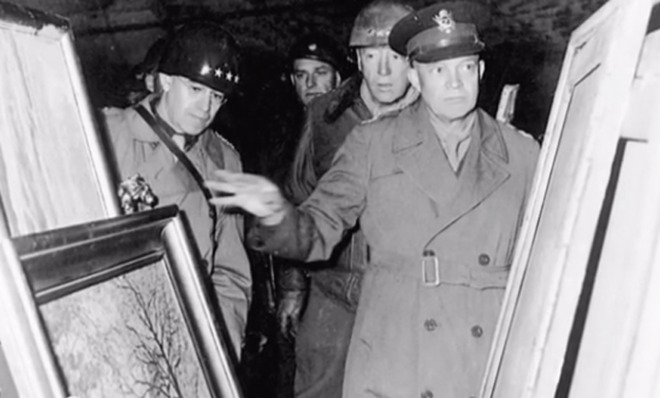The heroic true story behind the real-life 'Monuments Men'
A short documentary tells the fascinating story that forms the basis of the new George Clooney film


A free daily email with the biggest news stories of the day – and the best features from TheWeek.com
You are now subscribed
Your newsletter sign-up was successful

George Clooney's The Monuments Men, which once seemed preordained for Oscar glory, isn't exactly getting sterling reviews. But whether or not you plan to see the star-studded movie now that it's finally in theaters, it's worth learning the heroic true-life story behind it — and the brief documentary from the American Jewish Historical Society above does an excellent job summing it up.
The concentrated effort to preserve European artwork during World War II began when General Eisenhower ordered that all commanders avoid "the destruction of cultural and historical treasures whenever possible — even in the heat of battle." That necessitated the aid of the "Monuments, Fine Arts, and Archives Program," which was unofficially shortened to the "Monuments Men."
A newsreel from the era explains how a cache of priceless stolen artwork was recovered from a German salt mine, including works by Raphael, Rembrandt, and Van Dyck. Other crates contained stained-glass windows, books, and religious items like Torah scrolls. Monuments Man Harry Ettlinger describes discovering the artwork in the mine, which was packed with huge jars filled with nitroglycerin that he estimates were within two months of exploding and destroying the cache forever.
The Week
Escape your echo chamber. Get the facts behind the news, plus analysis from multiple perspectives.

Sign up for The Week's Free Newsletters
From our morning news briefing to a weekly Good News Newsletter, get the best of The Week delivered directly to your inbox.
From our morning news briefing to a weekly Good News Newsletter, get the best of The Week delivered directly to your inbox.
At the New York premiere of The Monuments Men on Tuesday, star Hugh Bonneville noted that his real-life counterparts were "roughly a group of 350 men and women." (For dramatic purposes, the film compresses that number to eight.) Together, they managed to recover millions of items, and their work continues to yield enormous dividends; some of the artwork's original owners are still being tracked today.
A free daily email with the biggest news stories of the day – and the best features from TheWeek.com
Scott Meslow is the entertainment editor for TheWeek.com. He has written about film and television at publications including The Atlantic, POLITICO Magazine, and Vulture.
-
 The environmental cost of GLP-1s
The environmental cost of GLP-1sThe explainer Producing the drugs is a dirty process
-
 Nuuk becomes ground zero for Greenland’s diplomatic straits
Nuuk becomes ground zero for Greenland’s diplomatic straitsIN THE SPOTLIGHT A flurry of new consular activity in the remote Danish protectorate shows how important Greenland has become to Europeans’ anxiety about American imperialism
-
 ‘This is something that happens all too often’
‘This is something that happens all too often’Instant Opinion Opinion, comment and editorials of the day
